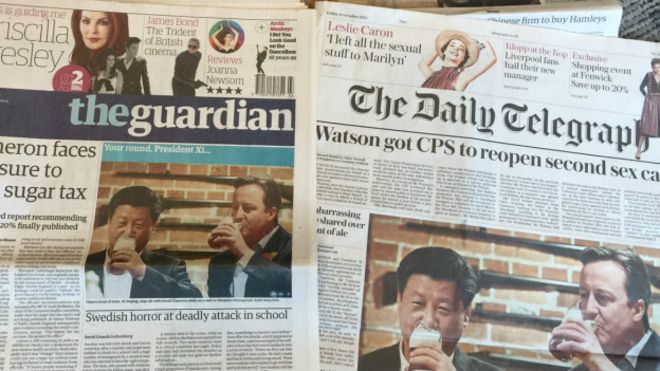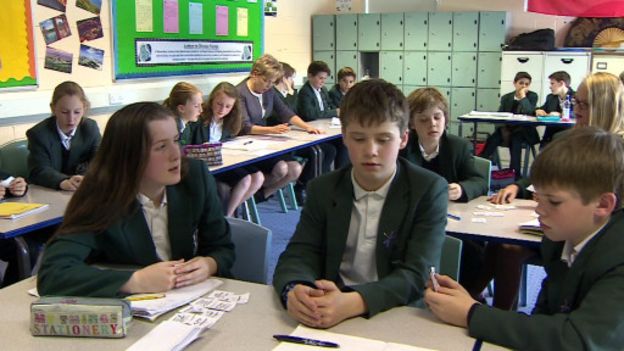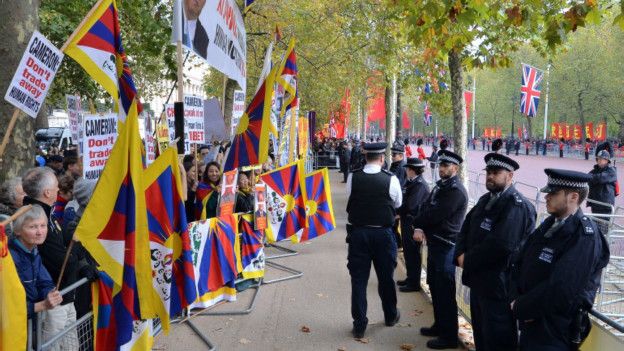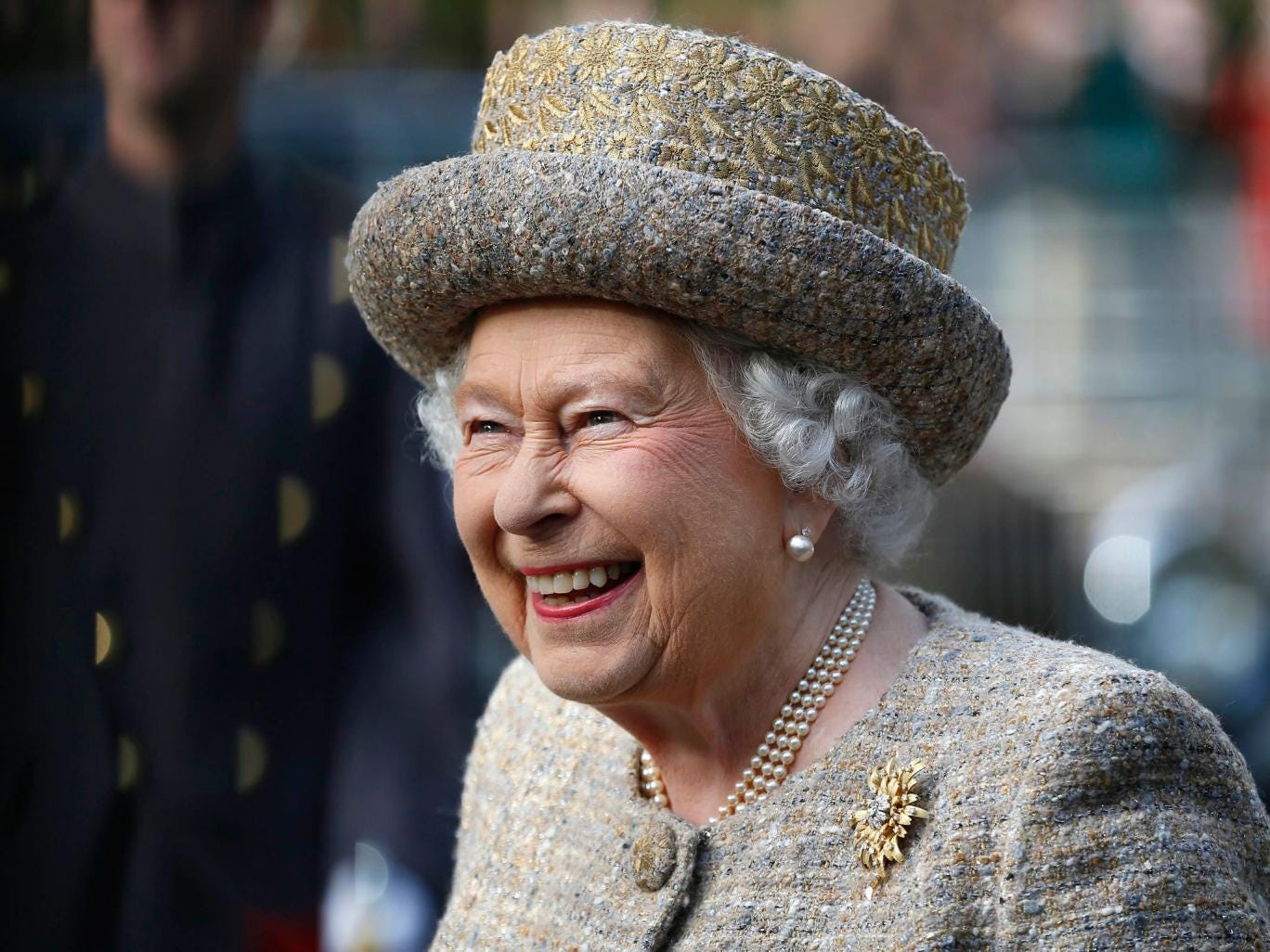- 2015年 10月 23日
2015年10月26日 星期一
2015年10月25日 星期日
习近平访英:画面很美 难掩担忧......英國人最喜歡的國家依次是澳大利亞、日本和韓國。
习近平已经展开了对英国的正式访问。周二的日程安排十分紧凑,在红地…
DW.COM|由 DEUTSCHE WELLE (WWW.DW.COM) 上傳
民間之聲
BBC援引英國《獨立報》(The Independ 民間之聲 BBC援引英國《獨立報》(The Independent)近日公佈的一份最新民調稱,雖然有超過53%的英國人同意加強與中國的商貿聯繫,但是僅有不足25%的英國人對中國持有好感。根據這份調查,英國人最喜歡的國家依次是澳大利亞、日本和韓國。 ent)近日公佈的一份最新民調稱,雖然有超過53%的英國人同意加強與中國的商貿聯繫,但是僅有不足25%的英國人對中國持有好感。根據這份調查,英國人最喜歡的國家依次是澳大利亞、日本和韓國。
2015年10月24日 星期六
China and the UK: Pomp and circumstance
The UK government, led by Prime Minister David Cameron, has taken a clear decision to hitch the country’s economic fortunes to China and create the conditions for a “golden era” in Sino-UK relations.
Many in Washington, meanwhile, see the “Hollandisation” of Britain, an abandonment of the pursuit of power on the international stage.
(Picture by Getty)
No institution does pomp and pageantry quite as well as the British royal family, and probably no institution appreciates it as much as the modern Communist party of China. Back home in China, television images this…
ON.FT.COM
2015年10月23日 星期五
Fish and Chips 的中英外交: 哪有醋和鹽呢?
英媒:「炸魚和薯條還行,哪有醋和鹽呢?」

英國首相卡梅倫帶中國國家主席習近平去酒吧喝啤酒吃英國的國菜炸魚和薯條(Fish and Chips)成了周五(23日)英國各大報紙競相報道的消息。
《每日電訊報》刊登了中英兩國領導人喝啤酒的照片。在分享了炸魚和薯條之後,習近平問「鹽和醋在哪裏啊」?
文章說,在兩人在喝酒吃薯條前曾舉行了一個小時的會談,就國際問題和中國在世界舞台扮演的角色交換了看法。
學中文
《泰晤士報》的一篇文章報道說,中國政府將出資讓英國的小學生學習漢語。

文章說,英國4歲的小學生將在學校學習中文,而且是必修課。
英國目前大約有70所小學開設中文課,還有幾十所中學也開設了漢語課,有些學校的漢語還是必修課。
通常這些錢來自中國政府在英國開辦的孔子學院,也有的直接來自中國的漢語辦公室。
英國財相奧斯本也承諾到2020年前再撥款1000萬英鎊,可以為5000多名學生提供漢語教學。
與此同時,《衛報》也報道了一篇與中英教育相關的文章。
報道說,習近平在訪問英國時表示,英國人向中國人學到了課堂紀律,中國人從英國人那裏學到了應該讓孩子多一點玩耍的時間。
習近平還特意提到了他看了BBC前不久所拍攝的一部關於中英教育對比的紀錄片。
他表示,中國的孩子玩的時間太少了。
反對聲音
《獨立報》刊登了一封讀者來信,文章的標題是「迎賓大道的抗議者嘗到了中國權力的滋味」。
 Image copyrightReuters
Image copyrightReuters
文章的作者說,她前往倫敦去支持西藏獨立的抗議隊伍,但是發現他們完全被中國和習近平的支持者所淹沒。
中國有組織的支持者的規模和數量令她震驚,並且讓她毫無凖備。
而相比之下, 中國人權等小規模的抗議者被擠到了一個小角落,淹沒在支持人群的汪洋大海中,並讓她感到受到了中國支持者和官員的威脅。
《獨立報》的另外一篇文章發表了英國專欄作家、喜劇演員斯蒂爾的文章。
斯蒂爾以毒舌和嘲諷著稱。他寫道,英國首相卡梅倫說,英國與中國的商貿交易越多,就越容易與中國就人權問題交換意見。斯蒂爾說,「那我們乾脆就把執行用的寶劍凖備好吧」。
他還寫道,也許英國的政客們下次應該把西藏的僧人用「釘子釘到水泥路面上」,讓中國的領導人踩在上面。
他還說,不是每個英國人都明白習近平對英國進行國事訪問所帶來的好處, 尤其是那些剛剛失業的煉鋼工人。
但英國的大臣們解釋說,只有先跟中國領導人搞好關係,才能說服他們改善人權。
(編譯:凱露 責編:高毅)
Communist rule in Poland ended on this day in 1989. The regime did to the country's national cuisine what it did to so much else: it reduced it to bland stodge characterised by poor ingredients, low standards and low expectations
A NATION'S cuisine can sometimes provide a nice history lesson. Take Poland, for instance. With Polish food boasting German, Jewish, Russian and Hungarian...
ECON.ST
2004/6/17 看報章學點吃喝英文
【本文下兩語請問瑞麟中:Excuse' mois/ cassoulet。屆時再更新。
第一個問題Excuse' mois正確寫法為Excusez-moi=Excuse me
第二個問題可以叫做什錦砂鍋。
cassoulet [kasulɛ]
nom masculin
sausage and bean hotpot
rl
18:00 2004/61/】
****
BBC駐北京記者 林慕蓮:
英國最經典的一道食品炸魚配薯條,終於在中國的首都北京安家落戶。與喝下午茶相比,炸魚配薯條在英國更受歡迎。儘管炸魚配薯條還不像愛爾蘭酒吧那樣在全球各地得到普及,不過BBC駐北京記者林慕蓮在她的來信中說,如果這道英國食品能在北京取得成功,那麼也許炸魚配薯條的名聲會徹底改變。 …….

fish and chips noun [U]
fish covered with batter (= a mixture of flour, eggs and milk) and then fried and served with pieces of fried potato
《每日電訊報》刊登了中英兩國領導人喝啤酒的照片。在分享了炸魚和薯條之後,習近平問「鹽和醋在哪裏啊」?
2015年10月21日 星期三
Leonard Woolf, THE TWILIGHT YEARS: The Paradox of Britain Between the Wars
Precious Moments
October 20, 2015 | by Sadie Stein
It’s no great shock that Leonard Woolf was recorded on film, not when you think about it—after all, the writer, publisher, and widower of Virginia lived into 1969.
And yet! And yet! It seems somehow magical that here he should be, modern and in color, talking about Maynard Keynes for all the world as if he is not a living bridge to a storied past, most of which went as unfilmed—as though Bloomsbury had not belonged to modernity at all, let alone invented it.
There’s less than a minute of footage of Leonard in the video above, and he’s not saying anything particularly revolutionary; just praising his friend Keynes’s famously lively mind. Perhaps because Virginia Woolf was never filmed, Leonard’s sheer normalcy lands with a lot of force. (I say “Leonard” and “Virginia” as if I know them, as if they are public property.) It’s hard not to think of his own words: “Whenever one really knows the facts, one finds that what is accepted by contemporaries or posterity as the truth about them is so distorted or out of focus that it is not worth worrying about.”
And yet.
Sadie Stein is contributing editor of The Paris Review, and the Daily’s correspondent.
October 20, 2015 | by Sadie Stein
It’s no great shock that Leonard Woolf was recorded on film, not when you think about it—after all, the writer, publisher, and widower of Virginia lived into 1969.
And yet! And yet! It seems somehow magical that here he should be, modern and in color, talking about Maynard Keynes for all the world as if he is not a living bridge to a storied past, most of which went as unfilmed—as though Bloomsbury had not belonged to modernity at all, let alone invented it.
There’s less than a minute of footage of Leonard in the video above, and he’s not saying anything particularly revolutionary; just praising his friend Keynes’s famously lively mind. Perhaps because Virginia Woolf was never filmed, Leonard’s sheer normalcy lands with a lot of force. (I say “Leonard” and “Virginia” as if I know them, as if they are public property.) It’s hard not to think of his own words: “Whenever one really knows the facts, one finds that what is accepted by contemporaries or posterity as the truth about them is so distorted or out of focus that it is not worth worrying about.”
And yet.
Sadie Stein is contributing editor of The Paris Review, and the Daily’s correspondent.
After the War, Before the War

Topical Press Agency/Getty Images
February 1922: A parcel delivery run in a vanished England.
By ALEX VON TUNZELMANN
Published: December 16, 2009
“It is a fact so familiar that we seldom remember how very strange it is,” the historian George N. Clark wrote in 1932, “that the commonest phrases we hear used about civilization at the present time all relate to the possibility, or even the prospect, of its being destroyed.”
In “The Twilight Years,” his thought-provoking and illuminating new study of the interwar period, Richard Overy contends that before 1914 the British believed they had conquered the world and would rule it forever. After World War I, a wrecked generation had to pick up the pieces of that world and ask what went wrong. It is this process that occupies the book, which successfully adopts a broad-brush approach to cultural life without obscuring gemlike details. During the 1920s and ’30s, Britain saw itself as a civilization in crisis, facing the ominous dawn of a new Dark Age.
Skip to next paragraph
THE TWILIGHT YEARS
The Paradox of Britain Between the Wars
By Richard Overy
Illustrated. 522 pp. Viking. $35
Skeptic though he may be about equating interwar Britain with the modern United States, Overy is clearly tickled by the parallels. He is too sophisticated a historian to belabor them, but from a chapter entitled “The Death of Capitalism” to his account of the self-proclaimed agents of morality attempting to “cure” homosexuality, there is plenty here that strikes a chord. On that supposed cure, the editor of the prestigious medical journal The Lancet was convinced that proper treatment could turn any homosexual into “quite a cheerful citizen” — though it is hard to imagine many of the unfortunate subjects being cheered up by the combination of vigorous exercise and cold baths he prescribed.
The economy of the early 1930s was, as John Maynard Keynes put it, in “a frightful muddle,” and capitalism itself was increasingly seen to be riddled with flaws. Debate raged about whether it should be reformed or junked. “The signposts of economic and social evolution point inevitably from capitalism to socialism and communism,” the young economist Maurice Dobb wrote. He became a prominent intellectual, accepting a position at Trinity College, Cambridge: as Overy acidly notes, “the college tolerated his Marxism and he, evidently, tolerated its opulence.”
Dobb was unusual. Though a more moderate socialism did come to hold political sway in Britain, the nation consistently rejected the extremist politics that swamped the rest of Europe. Even at the outbreak of World War II, Communist and fascist parties counted their combined memberships at around 40,000 — less than one percent of the population — and few of those were active. In 1933, Wyndham Lewis’s sympathetic biography of the new German chancellor, Adolf Hitler, was displayed in a famous bookshop on London’s Charing Cross Road. Twice a day, the window had to be hosed down to remove all the accumulated spittle.
While British politics remained resolutely mainstream, science flirted with the fringes. Social hygienists recommended that girls eat cakes and porridge to avoid sexually awakening themselves. Psychoanalysts applied their theories to “the insanity of nations.” Eugenicists claimed that a “defective” generation was being bred, arguing that criminality as well as physical and mental characteristics were inherited via “germ plasm.” Those classed as defective could include vagrants, inebriates, drug addicts, prostitutes, perverts, imbeciles, deaf-mutes, the blind, the insane and epileptics — totaling, in one estimate, 9.5 million people, almost one-quarter of Britain’s population. The birth control pioneer and eugenicist Marie Stopes, concerned with the decline in what she called the “imperial race,” disowned her own son because he married a woman who wore spectacles.
The outbreak of the Spanish Civil War in 1936 pitted the democratic republic against nationalist authoritarians. The conflict made a profound impact on Britain — one which, as Overy rightly says, has often been underrated. His chapter on it is one of the most affecting sections of the book, telling of how 4,000 Britons — scientists, philosophers, poets and manual workers alike — volunteered to fight Fascism in a country to which they had no connection, simply because they believed it to be a just cause. George Orwell was among those who went, hand grenades dangling from his belt, accompanied by a small dog with the initials of the Marxist party to which he belonged painted on its side. Orwell, Overy says in the course of a particularly winning description, was “so fastidious about completing his toilet each day that if there was no water to shave in, he would shave in wine.” That certainly brings a whole new dimension to Champagne socialism. Orwell was wounded in action, shot through the neck by a nationalist sniper. He was lucky to survive. Many did not.
Such had been the horrors of World War I that pacifism, and the avoidance of war by any means, was a dominant theme of the interwar years. The Spanish Civil War and the enormities of the Nazi regime in Germany changed that. “I hate war with as much venom as you do,” the novelist Storm Jameson wrote to her pacifist colleague Vera Brittain, “but I have come to believe that there are certain values for which it may be necessary to fight.” When the crisis of civilization really did arrive in the shape of World War II, there was no choice about how to deal with it. Britain fought for its liberty and its life.
“The Twilight Years” was published in England as “The Morbid Age.” Overy notes that Leonard Woolf was obliged to retitle some of his books for American publication: “Barbarians at the Gate” became “Barbarians Within and Without,” and after some debate “Quack Quack,” his critique of capitalism, became “Quack-Quack,” with a hyphen. These may be trifling, but Overy’s British title is more memorable and more appropriate to the content than the American one. It is hard to see why a publisher would prefer “The Twilight Years” — unless putting the word “Twilight” on the cover is enough to persuade Stephenie Meyer’s audience of teenage vampire fans to buy scholarly British cultural history.
Whatever it may be called, Overy’s study of British culture between the wars is absorbing and unexpectedly moving. Some of its stories may haunt the reader long after the book has been closed, and not just the morbid ones. This reviewer has been unable to forget the June 1939 survey sent out to all medical personnel of the British Psycho-Analytical Society, asking them to state preferences for their wartime service — whether they would rather do hospital work, emergency work, work with children or work with adults. Ernest Jones, the 60-year-old doyen of British psychoanalysis, sent back his form with a simple declaration scrawled at the bottom: “Ready for anything. E. J.” Perhaps that is a clue to why, despite the all-pervading sense of crisis, Britain survived its twilight years — and the catastrophic war that followed.
Alex von Tunzelmann’s latest book is “Indian Summer: The Secret History of the End of an Empire.”
女王請吃鹿肉 國宴播民歌 The programme finishes with pipe music
Chinese president hosted by Queen at Buckingham Palace state banquet – as it happened
Xi Jinping’s first day of engagements on his four-day visit to the UK aimed at cementing economic ties
The banquet at Buckingham Palace is reaching the end of its musical programme by now to the strains of ‘Nobody Does it Better’ (not this version).
Bond fans will of course recognise it as the theme tune from The Spy Who Loved Me, which is about the disappearance of two nuclear missile submarines.
The programme finishes with pipe music from 4th battalion The Royal Regiment of Scotland and the Army School of Bagpipe Music.
We’re going to wrap up this blog now, but will leave you with this representation of the Xi visit, courtesy of Steve Bell:
女王請吃鹿肉 國宴播民歌英國王室前晚舉行國宴(路透),菜單由英國女王親自拍板定案,包括產自北海的時令海鮮鰈魚與鹿肉,及甜點黑巧克力。晚宴菜單由法文書寫,國宴上的音樂更包含披頭四的名曲《Eleanor Rigby》、007詹姆士龐德系列電影《Nobody Does it Better》,更有一系列中國民歌包括《小河淌水》等。
英國皇家禮砲 (江春男);習近平說在人權方面"沒有最好、只有更好"
中國領導人習近平10月21日下午在唐甯街首相府與卡梅倫會晤後舉行聯合記者會。其中BBC記者庫恩斯伯格問他有關人權的問題。習近平說在人權方面"沒有最好、只有更好"。
司馬觀點:英國皇家禮砲 (江春男)
1022
......習近平訪美之後,接著訪英,展開大國外交,政治聲望大為提升。但是,美國之行只是順利,不算成功,歐巴馬對他缺乏熱情,實質議題沒有突破性的進展。倫敦之行則不同,他捧著百億英鎊的合同來訪,英國如大旱望烏雲之將至,企盼至殷,幾乎倒屣相迎。
不久之前,英國財政大臣歐斯本訪問新疆,說是考察絲路經濟帶,但外界解讀不是如此。新疆動亂頻傳,英國對人權問題毫不關心,備受國際社會的批評,英國媒體對卡梅倫政府的唯利是圖,更是冷嘲熱諷。
話說回來,幾年前,首相卡麥隆因接見達賴,北京讓他嘗到苦頭,後來他改變對北京態度,北京給他甜頭。英國是西方國家率先加入「亞投行」,也是率先對「一帶一路」表現積極態度的西歐國家,在英國領頭之下,許多歐洲國家也參加了。
其實,英國一方面蘇格蘭鬧獨立,一方面將以公投決定歐盟的關係,國際地位大不如前,經濟上遇到發展瓶頸,自顧不暇,無力扮演大國責任,關心別人的人權,只能拿出重商主義的看家本領,專心追求自己利益。皇室是大英帝國留下來的公關資源,這次皇家禮砲剛好派上用場。
不久之前,英國財政大臣歐斯本訪問新疆,說是考察絲路經濟帶,但外界解讀不是如此。新疆動亂頻傳,英國對人權問題毫不關心,備受國際社會的批評,英國媒體對卡梅倫政府的唯利是圖,更是冷嘲熱諷。
話說回來,幾年前,首相卡麥隆因接見達賴,北京讓他嘗到苦頭,後來他改變對北京態度,北京給他甜頭。英國是西方國家率先加入「亞投行」,也是率先對「一帶一路」表現積極態度的西歐國家,在英國領頭之下,許多歐洲國家也參加了。
其實,英國一方面蘇格蘭鬧獨立,一方面將以公投決定歐盟的關係,國際地位大不如前,經濟上遇到發展瓶頸,自顧不暇,無力扮演大國責任,關心別人的人權,只能拿出重商主義的看家本領,專心追求自己利益。皇室是大英帝國留下來的公關資源,這次皇家禮砲剛好派上用場。
只有利益沒朋友
美國是亞太地區強權,其戰略利益和中國直接碰撞,而英國在亞洲影響力有限,與中國沒有什麼利益衝突,香港民主人士嘗試到英國國會遊說,反應相當冷淡。外交上,「只有永遠利益,沒有永遠朋友」,英國政客留下來的名言,一點不假。
2015年10月19日 星期一
Brexit would turn Britain inward and protectionist . Britain looks to Greece as EU referendum looms
|
 | All eyes were on Greece and its referendum - none more so than in the UK where the "no" vote could empower those campaigning for an exit from the European Union. Samira Shackle reports from London. |
| ||||||
2015年10月18日 星期日
BBC Proms
倫敦逍遙音樂會的最後一夜
圖、文:立 夫
為期兩個月的倫敦逍遙音樂季(BBC Proms)月前圓滿結束,逍遙音樂季被喻為全世界最盛大的音樂季,這個音樂季之所以這麼成功,是因為其理念至今也十分創新大膽。
逍遙音樂季由亨利伍德創辦於一八九五年,目的是以低廉的價格讓音樂愛好者輕鬆隨意地欣賞古典音樂,現在的音樂季主要集中在夏季的七月到九月期間,整個音樂季所有的場次,除了基本的坐票外,還提供五英鎊(相當於六十澳門元)的站票(Promming ticket),觀衆只需要在音樂會當天排隊購買即可,由於不設劃位。故站票觀衆(Prommers)入場後可在劇院指定的“山頂”範圍隨意找個位置站立或坐下,甚至在欣賞音樂會期間,可隨意走動及躺在地板上觀看音樂會,的確是一種難得的音樂欣賞方式。
而整個音樂季的重頭戲莫過於“逍遙音樂季的最後一夜”(Last Night of the Proms),這個“最後一夜”跟一般的古典音樂會有些不同,是以英國本土音樂及英國愛國歌曲為主,
如《希望與光榮的土地》(Land of Hope and Glory),《耶路撒冷》(Jerusalem)等,也加入了不少與觀衆互動的元素,可說是一個“本土的愛國古典音樂盛宴及狂歡嘉年華”。很多觀衆都以奇裝異服打扮,更帶上氣球、喇叭以及不同國家的旗幟,十分熱鬧,觀衆都會為演奏者搖旗吶喊,而多首英國本地及愛國歌曲奏起時,更是全場的高潮。現場每個觀衆都會一同高聲唱着,並揮舞着手中的旗幟,現場氣氛十分熾熱,就連我這個外來人也感動起來,深深感受到他們的愛國心。
其實,在英國,多首愛國歌曲及國歌《天佑女王》都有不同的分工,《希望與光榮的土地》及《耶路撒冷》比較多作為英格蘭本土的代表歌曲,在多個運動會上採用;而威爾斯及蘇格蘭都有自己本土的代表歌曲,分別是《先賢之地》及《蘇格蘭之花》。所以《希望與光榮的土地》及《耶路撒冷》在倫敦及英格蘭本土的人氣極高,《希望與光榮的土地》氣勢磅礴,而《耶路撒冷》歌詞取自聖經,意義深遠,處處充滿着希望,可說百聽不厭,深受本土民衆喜愛。
2015年10月17日 星期六
American writes to the Queen asking her to take back control of the US because Presidential candidates 'aren’t up to par'
American writes to the Queen asking her to take back control of the US because Presidential candidates 'aren’t up to par'
'I beg of you, make the United States of America a colony of the United Kingdom,' the letter said

An American who asked the Queen to put Donald Trump out of the running and take back control of the US has had his request politely declined.
A Reddit user wrote that an “Anglophile friend” resorted to writing to Buckingham Palace because he was “frustrated with the current field of presidential candidates (particularly on the GOP side)”.
The letter, posted by user no-soy-de-escocia (I'm from Scotland), was addressed to both the Queen and Prime Minister.

It was posted on the day Donald Trump went head-to-head with other Republicans for the Presidential nomination
“On behalf of the American people, I urgently implore you to take us back,” it read.
“Clearly, the options we have to lead us aren’t up to par. Again, please, I beg of you, make the United States of America a colony of the United Kingdom.
READ MO
“For further reasons as to why this is such a necessary, albeit drastic, step, I refer to tonight’s Republican Party Primary debate. Thank you. God save The Queen.”
The letter was sent on 16 September, when 11 front-runners for the Republican Presidential nomination had gone head-to-head for three hours on CNN.
Sharing a photo of the reply, which appeared to be on official royal letter paper, the person wrote that they were shocked his friend was dignified with a response.
The Queen’s deputy correspondence coordinator wrote: “I have been asked to write in response to your recent letter to The Queen in which you express your views about the American government.
“Whilst your views have been noted, you will appreciate, I am sure, that there can be no question of The Queen intervening in the affairs of another Sovereign state.”
A photo of the letter, shared on Imgur by bardiak on Thursday, has been viewed more than two million times and the Reddit post has garnered more than 3,000 comments, which were mainly tongue in cheek.
Queen Elizabeth II: Life in pictures
“They have been playing us for years pretending to be our ally. Getting us nice and comfortable,” one person joked.
Redditor Horrrendous Rex called for a “Declaration... of Dependence”, while others debated the threshold for treason.
Buckingham Palace has become known for its correspondence, with one of the Queen’s aides replying to a six-year-old girl who invited the monarch to her birthday party earlier this year.
The response said the Queen “greatly appreciated the thought and hopes you have a lovely time”.
訂閱:
文章 (Atom)




